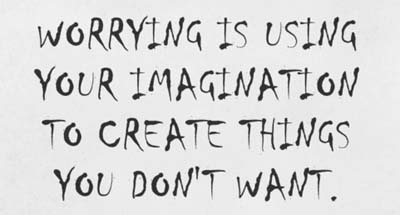Success Advice
9 Lies We Tell Ourselves That Kill Our Chances of Success

You know something? We’re lying to ourselves. We’re joking all the time. We don’t dare to face the truth.
Why? For a variety of reasons. Some of us are always making up excuses. Some of us are not disciplined enough to take on the hard work. The rest of us are afraid of success.
You may be thinking, “Hey! I’m no liar!” but the thing is, the lies are subtle.
Most, if not all of us are guilty of lying to ourselves from time to time.
Here are some of the things we say to ourselves, check it out.
1. “I don’t know what to do.”
Do you really?
Look, there’s honestly no excuse here. The answer to almost anything can be found with Google today.
Sure, maybe you don’t know the exact, technical answer you think you need for something, but the bigger question is whether you started to TRY your hand at the first solution you found.
The answers need not be perfect. Just give it a whirl. You will know what to do eventually.
2. “I’m too busy.”
To do what you know you have to do, which is to put in the work.
Straight up, busy is bullshit. Everybody is busy today!
If you really want something, you will make time for it no matter what.
So unless you know deep down you’ve really tried to fit the work in your schedule, you’re only lying to yourself.
3. “I’ve done all I could.”
If you know there’s another one or two possibilities to what you know you can do to give you better results, then do it.
Don’t say you’ve done it all just because you finished the main tasks. It’s the other tiny things that actually makes the difference in the results.

4. “I’m too tired.”
Or, are you just lazy?
Unless you’re a hundred years old or suffering from energy-sapping sickness, this is no excuse.
There’s no harm in losing a couple of hours of sleep or staying up late a little bit more to work. This is what separates the truly successful and the rest of the world.
If anything, do yourself a favour and adjust your lifestyle so that you can get ample rest to maximize your productivity.
5. “I can’t do it alone. I require guidance. I need a mentor!”
Come on man.
For whatever great feat there has been done out there, somebody did it on their own first! It also takes a single person with a single idea within to invent or create something!
Getting help and being mentored is great for reducing the learning curve, but how would you know how capable you really are if you don’t give yourself a chance to fail?
Run into the dark. You’ll be surprised with what you’re capable of.
6. “I’m broke.”
This lie comes in two forms.
The first is that we think we need to spend on the latest equipment, course or whatever before we start on our venture.
No, you don’t. Just because something is new and expensive doesn’t mean you will get a lot out of it. You can easily try your hand at starting now with free tools online or simply borrowing from others.
The second is that we think we lack money when we really don’t.
“I’m broke” is what the guy who drinks, smokes and parties all the time said. That’s a true story I see in some of my friends.
Unless your bank account reads zero and you’re homeless, you’re not broke. You just need to stop spending on crap and start investing in yourself properly.
And quite frankly, you’ve only yourself to blame if you don’t want to get a job when you know you can.

7. “I’m not as good as others.”
This is pure self-sabotage. It is a lie that only reflects your lack of confidence and sadly, it becomes true for you when it paralyzes you into inaction.
See now, it’s not about being as good as others. It’s about always doing your best and learning to be an effective communicator to your prospects with your art, craft and passion. How good or bad others are really don’t matter at all.
Don’t put others on a pedestal. Work on creating your own pedestal and lift yourself up.
Besides, even if others are more talented than you, it’s useless if they don’t have the right attitude and that’s what matters most.
8. “I don’t know where to start.”
You don’t know? Or you just don’t dare to?
It’s too easy to start today, so there’s really no excuses.
Learn by using Google.
Try your hand at it and carry out the first step.
Get feedback by sharing it with your friends on social media.
How can you not know where to start?
9. “I’m not good enough.”
The worst lie of all. When you say this, you’re telling yourself something that doesn’t exist at all.
Again, it’s not about trying to be good. It’s about trying and giving it your best shot.
And you do that over and over again until you become the best version of yourself.
Please don’t ever lie to yourself like that. It’s unhealthy and doesn’t make sense at all.
You can’t ever know for certain until you try, start and give yourself a chance. Nobody starts something being the best anyway.
What are some of the lies you to yourself sometimes? Please share them in the comments below so we can learn from one another.
Business
Why Smart Entrepreneurs Are Quietly Buying Gold and Silver
When stocks, property, and cash move together, smart business owners turn to one asset that plays by different rules.

You’ve built your business from the ground up. You know what it takes to create value, manage risk, and grow wealth. But here’s something that might surprise you: some of the most successful entrepreneurs are quietly adding physical gold and silver to their portfolios. (more…)
Business
The Simple Security Stack Every Online Business Needs
Most small businesses are exposed online without realising it. This simple protection stack keeps costs low and risks lower.

Running a business online brings speed and reach, but it also brings risk. Data moves fast. Payments travel across borders. Teams log in from homes, cafés, and airports. (more…)
Business
If Your Business Internet Keeps Letting You Down, Read This
From smoother operations to better security, dedicated internet access is quietly powering today’s high-performing businesses.

Today, a dependable internet service is the bedrock for uninterrupted business operations. Many organizations rely on stable online connections for communication, data transfer, and customer interaction. (more…)
Did You Know
How Skilled Migrants Are Building Successful Careers After Moving Countries
Behind every successful skilled migrant career is a mix of resilience, strategy, and navigating systems built for locals.

Moving to a new country for work is exciting, but it can also be unnerving. Skilled migrants leave behind familiar systems, networks, and support to pursue better job opportunities and a better future for their families. (more…)
-

 News2 weeks ago
News2 weeks agoBrandon Willington Builds 7-Figure Business by Ignoring Almost Everything
-

 Health & Fitness3 weeks ago
Health & Fitness3 weeks agoWhat Minimalism Actually Means for Your Wellness Choices
-

 Did You Know3 weeks ago
Did You Know3 weeks agoWhy Most Online Courses Fail and How to Fix Them
-

 Business3 weeks ago
Business3 weeks agoIf Your Business Internet Keeps Letting You Down, Read This
-

 Business1 week ago
Business1 week agoEntrepreneur’s Guide to Pay Stubs: Why Freelancers and Small Business Owners Need a Smart Generator
-

 Business7 days ago
Business7 days agoThe Salary Shift Giving UK Employers An Unexpected Edge
-

 Business1 week ago
Business1 week agoThe Simple Security Stack Every Online Business Needs
-

 Scale Your Business1 week ago
Scale Your Business1 week ago5 Real Ways to Grow Your User Base Fast





























12 Comments